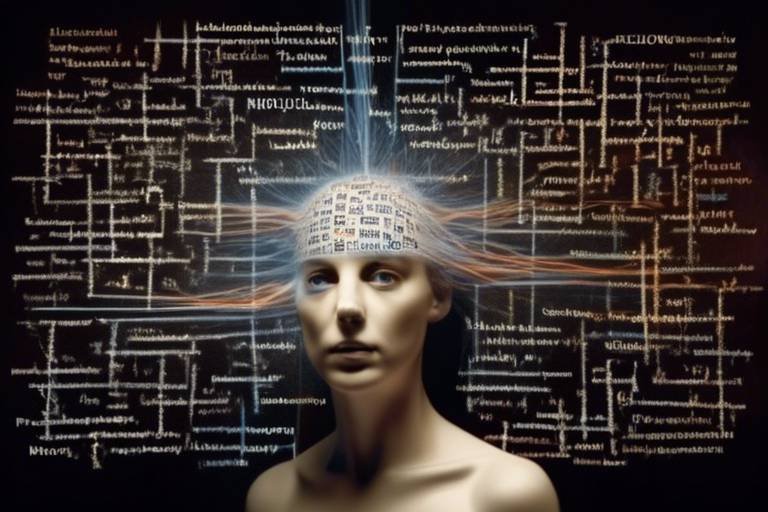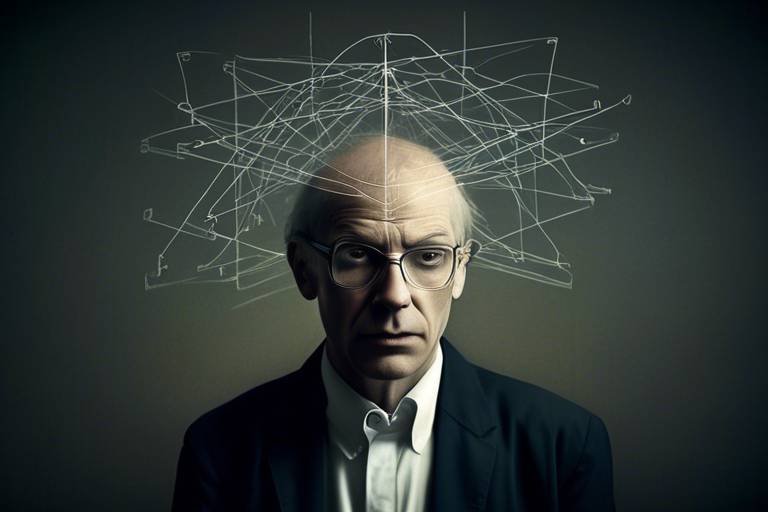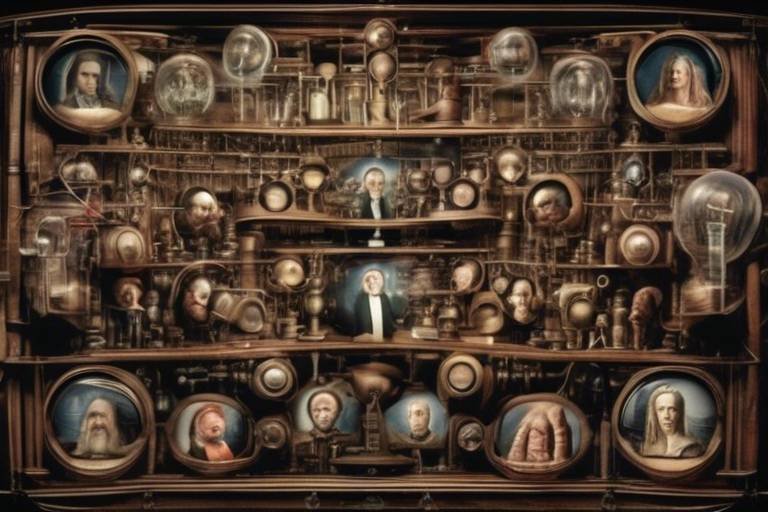The Phenomenology of Perception - Linking Neurology and Philosophy
The intricate relationship between neurology and philosophy is a fascinating domain that delves into how our perceptions shape our understanding of reality and consciousness. At the heart of this exploration lies phenomenology, a philosophical approach that emphasizes the importance of subjective experience. Imagine perceiving the world not just through your senses but also through the lens of your thoughts, emotions, and cultural background. This interplay between sensory experiences and our interpretations forms the essence of consciousness, creating a rich tapestry of understanding that is both personal and universal.
To grasp the complexity of perception, we first need to recognize that it is not merely a passive reception of stimuli but an active engagement with the world around us. Each moment of perception is a blend of biological processes and philosophical interpretations. For instance, when you see a vibrant sunset, your brain is busy processing light, color, and depth, while your mind might be reflecting on memories or emotions tied to that moment. This duality raises profound questions: How much of what we perceive is shaped by our biology, and how much is influenced by our personal experiences and beliefs?
The phenomenon of perception is akin to a grand orchestra, where each instrument represents a different aspect of our sensory experiences. The neurological elements provide the rhythm and structure, while philosophical insights add depth and meaning. Through this lens, we can begin to appreciate how our brains interpret sensory data, allowing us to create a coherent understanding of our surroundings. This synthesis of neurology and philosophy not only enhances our comprehension of perception but also invites us to consider the implications for our sense of self and our place in the universe.
As we embark on this journey of understanding, we will explore various facets of perception, from the biological underpinnings that shape our sensory experiences to the philosophical questions that challenge our understanding of existence. By examining case studies and engaging with phenomenological methods, we can uncover the layers of meaning embedded in our perceptions. Ultimately, this exploration will illuminate the dynamic relationship between our brains, our experiences, and the reality we construct from them.
- What is phenomenology? Phenomenology is a philosophical approach that focuses on the study of consciousness and the objects of direct experience.
- How does neurology relate to perception? Neurology examines the biological processes that underpin sensory experiences, revealing how our brains process and interpret information.
- What role does subjective experience play in perception? Subjective experience is crucial as it influences how individuals interpret and understand sensory information, shaped by personal, cultural, and emotional factors.
- Can perception change over time? Yes, perception can change due to neuroplasticity, which allows the brain to reorganize itself based on experiences.

The Nature of Perception
Understanding perception is like peering through a kaleidoscope, where the colors and shapes continuously shift and morph, revealing a unique pattern that is distinctly yours. At its core, perception is not merely about the raw data our senses collect; it’s about how we interpret and make sense of that data. Our sensory experiences are influenced by a myriad of factors, including our emotions, past experiences, and even our cultural backgrounds. This interplay between subjective experiences and objective stimuli shapes our consciousness and ultimately our reality.
Imagine walking through a bustling market. The vibrant colors of the fruits, the tantalizing aromas of spices, and the cacophony of voices create a rich tapestry of sensory information. However, how you perceive this environment is uniquely yours. Your memories, feelings, and even your mood can alter how you interpret these stimuli. For instance, someone who has fond memories associated with a particular spice might feel joy when they smell it, while another person may feel indifferent. This illustrates the dynamic nature of perception, where the same stimuli can evoke vastly different responses from different individuals.
Furthermore, the context in which we experience these stimuli plays a crucial role. If you’re in a celebratory mood, the sounds of laughter and music may enhance your enjoyment of the market atmosphere. Conversely, if you’re feeling down, those same sounds might feel overwhelming or even irritating. This concept highlights the importance of contextual factors in shaping our perceptions. Our brains are constantly working to filter and prioritize sensory information, focusing on what's most relevant to us in any given moment.
Additionally, it’s essential to recognize that our perceptions are not static. They can evolve over time based on new experiences and information. This is where the concept of neuroplasticity comes into play, which we will explore further in subsequent sections. Neuroplasticity refers to the brain's ability to reorganize itself by forming new neural connections throughout life. This means that our perceptions can change as we learn and grow, allowing us to adapt to new environments and experiences.
In summary, the nature of perception is a complex and multifaceted phenomenon. It encompasses not just the sensory data we receive but also how we interpret and respond to that data based on our unique backgrounds and contexts. Understanding this intricate relationship can lead to deeper insights into our consciousness and the human experience as a whole.
- What is perception? Perception is the process by which our brains interpret sensory information, shaping our understanding of reality.
- How does context affect perception? Context can significantly influence how we interpret sensory stimuli, altering our emotional and cognitive responses.
- Can perception change over time? Yes, perceptions can evolve as a result of new experiences, learning, and neuroplasticity.
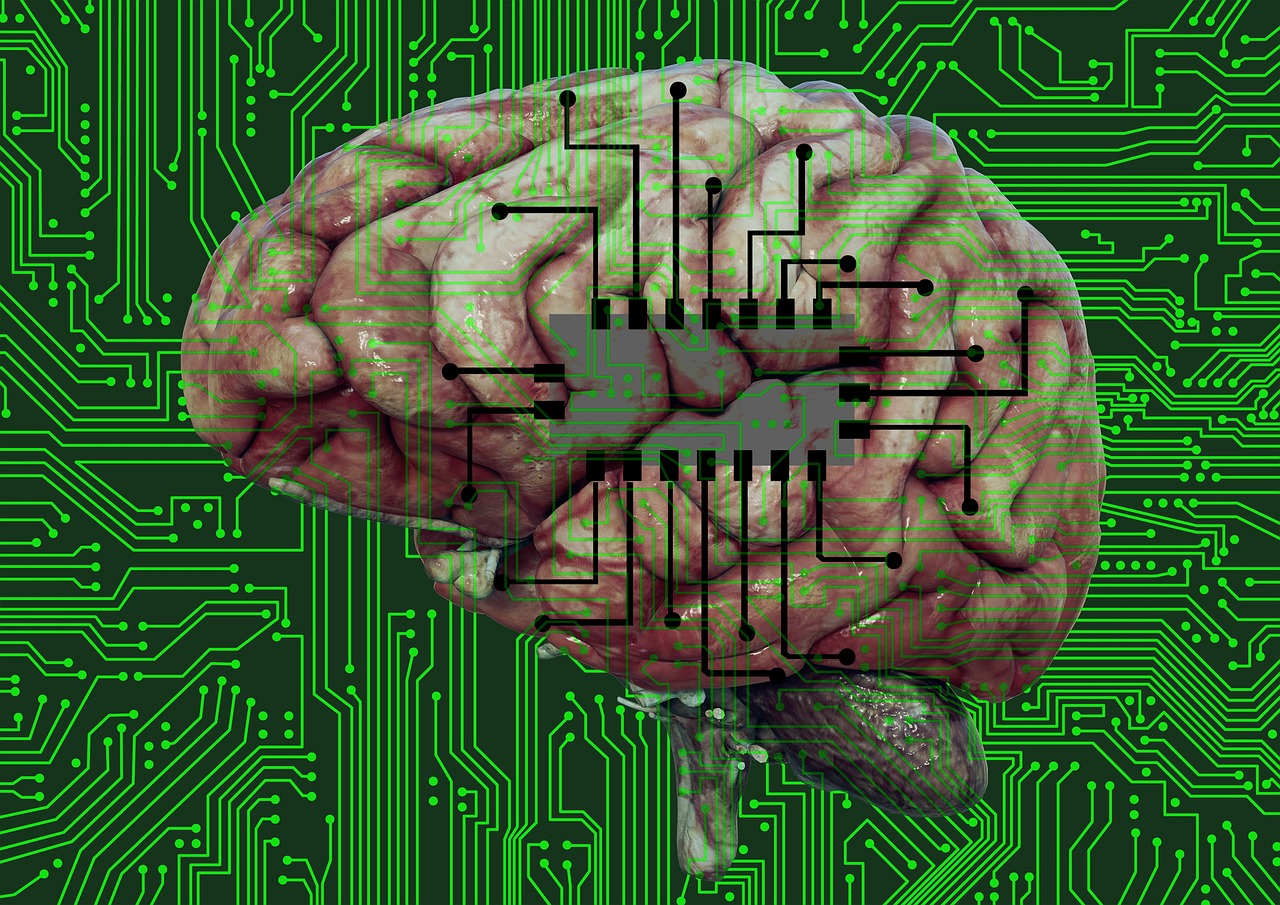
The Role of Neurology
When we dive into the fascinating realm of neurology, we uncover the biological underpinnings of how we perceive the world around us. It's like peeling back the layers of an onion, revealing the intricate connections that shape our sensory experiences. Neurology offers us a window into the brain's complex machinery, showing us how neurons communicate, how pathways are formed, and how these processes influence our understanding of reality. Have you ever wondered why a beautiful sunset can evoke feelings of joy while a thunderstorm might make you feel anxious? It's all about the brain's response to sensory stimuli, and neurology is the key to unlocking these mysteries.
At the heart of this exploration lies the neural pathways that carry information from our senses to the brain. Each sense—be it sight, sound, touch, taste, or smell—has its own unique route. For example, light enters our eyes and is converted into electrical signals that travel through the optic nerve to the visual cortex. Here, the brain interprets these signals, allowing us to experience the vibrant colors and shapes of the world. Similarly, sound waves vibrate through the air, and when they reach our ears, they are transformed into neural signals that are processed in the auditory cortex. This intricate dance of signals is what brings our perceptions to life.
Moreover, the concept of neuroplasticity plays a crucial role in how we perceive our environment. This remarkable ability of the brain to reorganize itself by forming new neural connections means that our experiences can literally reshape our perceptions. For instance, if someone loses their sight, their brain may enhance its ability to process auditory information, allowing them to 'see' the world in a different way. This adaptability of the brain highlights the dynamic relationship between our experiences and our perceptions, showcasing how neurology and phenomenology intertwine.
To truly appreciate the role of neurology in perception, we must delve deeper into the specific neural mechanisms involved in sensation. These mechanisms are the unsung heroes of our sensory experiences, working tirelessly behind the scenes. When we touch something hot, for example, sensory receptors in our skin send signals to the spinal cord, which then relays the information to the brain. This rapid response not only protects us from harm but also shapes our understanding of temperature and texture.
Understanding these mechanisms can help us appreciate the complexities of sensory processing. It's not just about the raw data our senses gather; it's also about how our brains interpret and give meaning to that data. This interpretation is influenced by a myriad of factors, including our past experiences, emotions, and even cultural background. Thus, neurology doesn't just inform us about the biological basis of perception; it also highlights the interplay between our physiological responses and our conscious experiences.
Examining case studies of individuals with altered perceptions due to neurological conditions can provide valuable insights into these complexities. For example, consider a person with synesthesia, a condition where stimulation of one sensory pathway leads to automatic, involuntary experiences in a second sensory pathway. This means that they might see colors when they hear music or taste flavors when they read words. Such cases challenge our understanding of perception, revealing the astonishing flexibility of the brain and how it can create unique sensory experiences.
In summary, the role of neurology in shaping our perceptions is both profound and multifaceted. It connects the dots between the physical workings of our brains and the rich tapestry of our conscious experiences. By understanding these connections, we can better appreciate the complexity of human perception and the intricate ways our brains interpret the world around us.
- What is the relationship between neurology and perception?
Neurology studies the brain's biological processes, which directly influence how we perceive sensory information. - How does neuroplasticity affect perception?
Neuroplasticity allows the brain to adapt and reorganize itself, which can change how we perceive our environment based on our experiences. - Can neurological conditions alter perception?
Yes, conditions like synesthesia or brain injuries can significantly change how individuals experience and interpret sensory information.

Neural Mechanisms of Sensation
The human brain is a marvel, a complex network of neurons working tirelessly to interpret the world around us. When we talk about the , we're diving deep into how our brain processes the vast array of sensory information we encounter every day. Think of your brain as a sophisticated computer, receiving inputs from various sensors—our eyes, ears, skin, nose, and tongue. Each of these senses has its own dedicated pathways and processes, but they all converge in the brain to create a cohesive understanding of our environment.
At the core of sensation are specialized neurons known as sensory receptors. These receptors are tuned to specific types of stimuli, such as light, sound, or touch. When a stimulus occurs, these receptors convert it into electrical signals, which travel along the nervous system to the brain. This process is akin to a relay race, where each runner passes the baton (in this case, information) to the next. The journey of these signals can be broken down into several key stages:
- Transduction: The conversion of physical stimuli into neural signals.
- Transmission: The movement of these signals through the nervous system to the brain.
- Processing: The brain interprets these signals, allowing us to perceive and respond to our environment.
Once the signals reach the brain, they are processed in specific areas dedicated to different senses. For example, visual information is primarily processed in the occipital lobe, while auditory information is handled in the temporal lobe. This specialization allows for efficient processing and helps us make sense of the sensory information flooding our brains. It’s like having different departments in a company, each focusing on their specific tasks to keep the organization running smoothly.
But it doesn’t stop there. The brain doesn’t just passively receive and interpret sensory information; it actively engages with it. This is where the concept of neural plasticity comes into play. Our experiences can reshape the neural pathways associated with our senses, meaning that how we perceive the world can change over time. For instance, a musician may develop heightened auditory sensitivity compared to someone who doesn’t engage with music regularly. This adaptability illustrates the dynamic relationship between our experiences and our perceptions.
Moreover, the complexity of sensation is further illustrated through various neurological conditions. Conditions such as synesthesia, where stimulation of one sensory pathway leads to automatic, involuntary experiences in a second sensory pathway, challenge our understanding of how sensations are processed. Imagine tasting colors or seeing sounds—these unique experiences highlight the intricate interplay between different sensory modalities.
In summary, the neural mechanisms of sensation are not merely about the pathways and processes involved; they encompass a rich tapestry of interactions that shape our perception of reality. By understanding these mechanisms, we gain insight into how our brain interprets the world, how it adapts to new experiences, and how individual differences can lead to unique perceptual experiences.
Q1: What are sensory receptors?
A1: Sensory receptors are specialized neurons that respond to specific types of stimuli, such as light, sound, or touch, and convert them into electrical signals for the brain to process.
Q2: How does neuroplasticity affect perception?
A2: Neuroplasticity refers to the brain's ability to reorganize itself by forming new neural connections. This means that our experiences can change how we perceive sensory information.
Q3: What is synesthesia?
A3: Synesthesia is a neurological condition where stimulation of one sensory pathway leads to involuntary experiences in another, such as seeing colors when hearing music.

Neuroplasticity and Perception
Neuroplasticity, often hailed as the brain's remarkable ability to adapt and reorganize itself, plays a crucial role in how we perceive the world around us. Imagine your brain as a bustling city, where neurons are the roads and pathways connecting different neighborhoods. When we experience something new, it's like constructing a new road that opens up fresh routes for information to travel. This dynamic process not only enhances our perception but also reshapes it based on our experiences.
To understand how neuroplasticity influences perception, we must first recognize that our sensory experiences are not static. They are continuously molded by our interactions with the environment. For instance, when a person learns to play a musical instrument, their brain undergoes significant changes. New neural connections are forged, which can enhance their auditory perception, allowing them to distinguish between subtle notes and rhythms. This is a prime example of how engaging in an activity can literally reshape the way we perceive sound.
Moreover, neuroplasticity is not just about learning new skills; it also encompasses recovery from injuries. Consider individuals who have suffered a stroke and subsequently undergo rehabilitation. Through targeted therapies, their brains can rewire themselves to compensate for lost functions. This remarkable ability to adapt illustrates how our perceptions can change dramatically based on our circumstances. The brain's capacity to reorganize itself in response to injury or experience highlights the intricate relationship between neuroplasticity and perception.
Interestingly, neuroplasticity can also influence our emotional perceptions. For instance, individuals who have experienced trauma may have their neural pathways altered, affecting how they perceive safety and danger. This can lead to heightened sensitivity to perceived threats, reshaping their interactions with the world. Understanding this connection can be vital in therapeutic settings, where addressing these perceptions can facilitate healing and recovery.
In conclusion, the interplay between neuroplasticity and perception is a fascinating area of study that reveals the brain's incredible adaptability. By recognizing how our experiences shape our neural pathways, we can better understand the subjective nature of perception. This knowledge not only enriches our comprehension of consciousness but also opens up new avenues for therapeutic interventions aimed at enhancing our perceptual experiences.
- What is neuroplasticity? Neuroplasticity is the brain's ability to reorganize itself by forming new neural connections throughout life, allowing it to adapt to new experiences, learn new information, and recover from injuries.
- How does neuroplasticity affect perception? Neuroplasticity affects perception by reshaping neural pathways based on experiences, which can enhance or alter how we interpret sensory information.
- Can neuroplasticity help with recovery from brain injuries? Yes, neuroplasticity plays a crucial role in recovery from brain injuries by allowing the brain to adapt and compensate for lost functions through rehabilitation and therapy.
- Is neuroplasticity limited to childhood? No, neuroplasticity occurs throughout life, although it is often more pronounced during childhood when the brain is still developing.
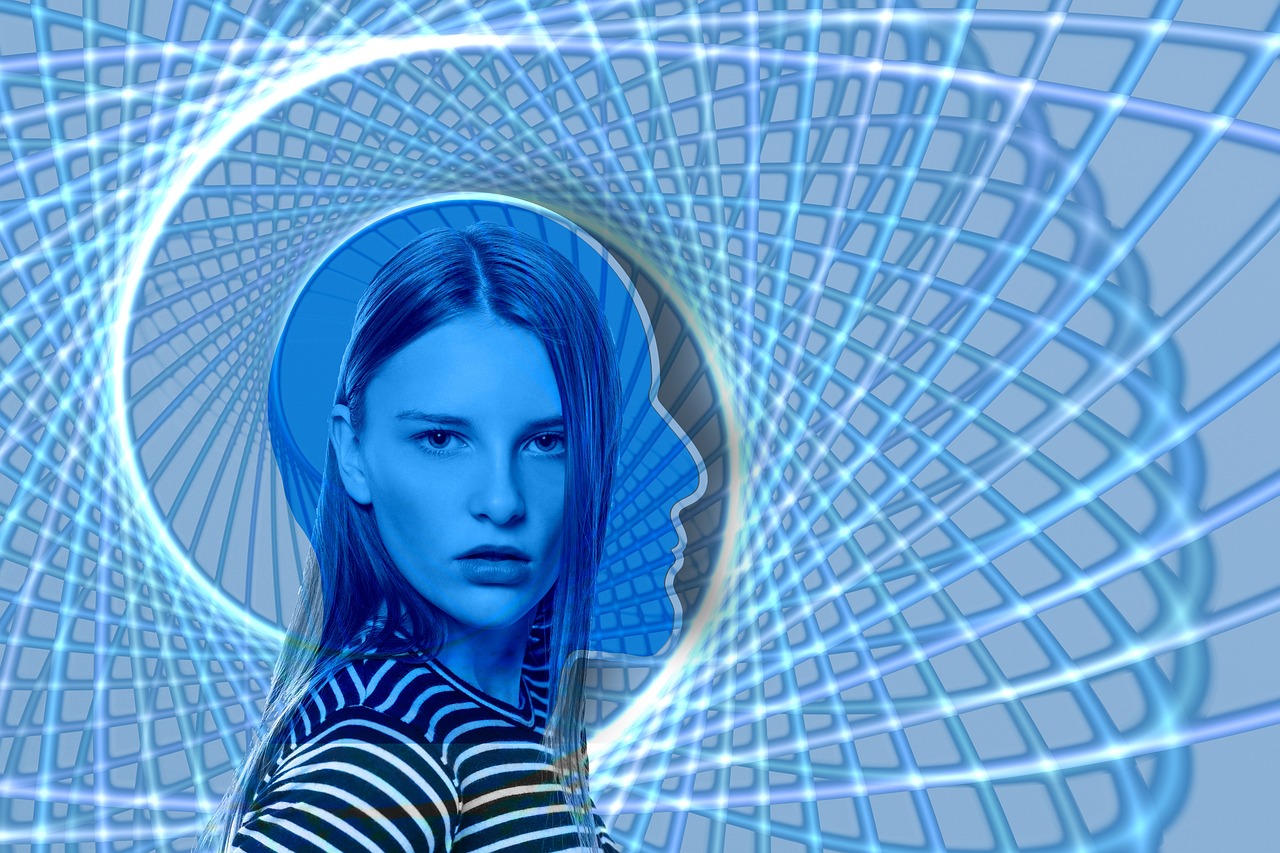
Case Studies in Perception
When diving into the fascinating world of perception, case studies serve as a powerful lens through which we can explore the complexities of sensory processing. These real-life narratives not only illustrate the intricacies of how we perceive the world but also highlight the profound impact neurological conditions can have on our everyday experiences. For instance, consider the case of a man named John, who suffered from a rare condition known as visual agnosia. Despite having intact vision, John struggled to recognize faces or objects, illustrating how perception is not merely about receiving sensory input but also about interpreting that input correctly.
Another compelling example is that of a woman named Lisa, who experienced synesthesia, a condition where stimulation of one sensory pathway leads to automatic, involuntary experiences in a second sensory pathway. For Lisa, numbers were not just digits; they had colors and textures. This unique perception reshaped her understanding of mathematics and art, demonstrating how individual differences in sensory processing can lead to vastly different interpretations of the same reality.
These case studies not only fascinate but also challenge us to rethink what we consider "normal" perception. They raise critical questions about the essence of reality: If two people can look at the same object and perceive it entirely differently, what does that say about our understanding of existence? Are we merely products of our neurological wiring, or do our subjective experiences play a more significant role in shaping our reality?
Through examining these individual experiences, we can begin to appreciate the vast spectrum of human perception. The implications of these studies extend beyond the individual; they invite us to reflect on societal norms and expectations surrounding perception. For example, how do we accommodate those with altered perceptions in our communities? How do their experiences inform our understanding of consciousness and identity?
To further illustrate the impact of neurological conditions on perception, we can summarize key findings from various case studies in the following table:
| Case Study | Condition | Key Insight |
|---|---|---|
| John | Visual Agnosia | Highlights the difference between perception and recognition. |
| Lisa | Synesthesia | Demonstrates how sensory experiences can intertwine and enhance creativity. |
| Mark | Prosopagnosia | Challenges the concept of facial recognition as a universal experience. |
| Sarah | Phantom Limb Sensation | Reveals the brain's ability to maintain perception despite physical absence. |
In conclusion, case studies in perception not only enrich our understanding of how we interpret the world but also underline the importance of recognizing and valuing diverse perceptual experiences. As we continue to explore these narratives, we gain insights that bridge the gap between neurology and philosophy, ultimately leading to a more profound understanding of consciousness itself.

Philosophical Perspectives
Philosophical perspectives on perception delve deep into the very essence of what it means to experience reality. At the heart of this exploration lies the question: What is the nature of existence, and how do our subjective experiences shape our understanding of the world? Think of perception as a lens through which we view life; this lens is not only shaped by our senses but also by our thoughts, emotions, and cultural backgrounds. The interplay between these elements creates a rich tapestry of experiences that can differ vastly from one individual to another.
One of the most profound philosophical inquiries into perception comes from the works of phenomenologists like Edmund Husserl and Martin Heidegger. They emphasized the importance of subjective experience, arguing that understanding consciousness requires us to focus on how we perceive the world, rather than solely on the objective reality that exists outside of us. This leads us to consider the concept of intentionality, which is the idea that consciousness is always directed towards something. In simpler terms, when we think or perceive, we are always relating to something beyond ourselves, whether it’s an object, a feeling, or an idea.
Moreover, the philosophical debate surrounding perception raises intriguing questions about the reliability of our senses. For instance, how can we trust what we see or hear when our perceptions can be influenced by various factors such as
- Emotional state
- Cultural background
- Previous experiences
Furthermore, the philosopher Immanuel Kant proposed that our understanding of the world is shaped by both sensory experiences and the innate structures of our mind. He suggested that while we can experience phenomena (the world as it appears to us), the noumena (the world as it is in itself) remains inaccessible. This distinction highlights the limitations of human perception and suggests that there is always more to reality than meets the eye. In this sense, our perception is not just a passive reception of stimuli; it is an active construction of reality based on our cognitive frameworks.
In contemporary discussions, the implications of these philosophical perspectives extend to fields such as cognitive science and artificial intelligence. As we develop technologies that mimic human perception, we must consider the philosophical questions they raise. Can a machine truly perceive, or is it merely processing data? This inquiry not only challenges our understanding of consciousness but also invites us to reflect on what it means to be human in an age of rapidly advancing technology.
In conclusion, philosophical perspectives on perception encourage us to question the very foundations of our understanding of reality. They remind us that perception is not merely a sensory experience but a complex interplay of consciousness, culture, and cognition. As we navigate our lives, it’s essential to remain aware of the subjective nature of our experiences, as it shapes not only our personal reality but also our interactions with others and the world around us.
- What is the role of perception in philosophy?
Perception plays a crucial role in philosophy as it shapes our understanding of reality, knowledge, and consciousness. - How do cultural factors influence perception?
Cultural factors can significantly shape how we interpret sensory information, affecting our beliefs, values, and experiences. - What is the relationship between perception and knowledge?
The relationship is complex; perception can inform our knowledge, but it can also mislead us, raising questions about the reliability of what we know.

The Subjective Experience
The concept of subjective experience is a fascinating aspect of how we perceive the world around us. Each individual interprets sensory information through a unique lens, shaped by personal history, emotions, and cultural background. Imagine walking into a room filled with the aroma of freshly baked cookies. For some, this scent may evoke warm memories of childhood, while for others, it could simply be a pleasant smell. This difference highlights how our perceptions are not just about the stimuli themselves but also about the intricate tapestry of our personal experiences.
Our subjective experiences can be influenced by various factors, including cultural context, emotional state, and psychological conditions. For instance, a person experiencing anxiety may perceive a bustling café as overwhelming and chaotic, while someone in a relaxed state might find it lively and inviting. This divergence in perception underscores the idea that reality is not a universal experience but rather a highly individualized one. To illustrate this further, consider the following table that outlines different factors affecting subjective experiences:
| Factor | Impact on Perception |
|---|---|
| Cultural Background | Shapes interpretations of sensory experiences based on shared beliefs and practices. |
| Emotional State | Colors perceptions; joy may enhance positive experiences, while sadness may amplify negative ones. |
| Psychological Conditions | Alters the way sensory information is processed, leading to unique interpretations of reality. |
Furthermore, the subjective experience of perception is not static. It evolves over time, influenced by ongoing experiences and interactions with the environment. For example, a person who initially dislikes a particular genre of music may grow to appreciate it after repeated exposure, illustrating how our perceptions can shift and adapt. This adaptability is crucial for our survival and social interactions, allowing us to navigate an ever-changing world.
In essence, the subjective experience of perception is a complex interplay of various elements that come together to shape our understanding of reality. It serves as a reminder that while we may share the same physical world, our individual experiences create a rich mosaic of interpretations and meanings. This leads us to ponder deeper questions about the nature of consciousness and how it is influenced by our perceptions.
As we delve deeper into the subjective experience, it is essential to recognize that our perceptions are not merely passive reflections of the world around us. Instead, they are active constructions influenced by an intricate network of factors. This realization opens up a dialogue about the nature of reality itself and challenges us to consider how much of what we perceive is a reflection of our inner selves rather than an objective truth.
- What is subjective experience?
Subjective experience refers to how individuals interpret and understand sensory information based on their personal backgrounds and emotions. - How do emotions influence perception?
Emotions can significantly alter the way we perceive stimuli, making certain experiences feel more intense or overwhelming depending on our emotional state. - Can perception change over time?
Yes, perception is dynamic and can evolve with new experiences, learning, and exposure to different environments.

Phenomenology as a Method
Pheomenology is not just a philosophical concept; it's a methodological approach that dives deep into the lived experiences of individuals. By focusing on the essence of consciousness, phenomenology seeks to uncover the layers of perception that shape our understanding of reality. Imagine peeling back the layers of an onion, where each layer represents a different aspect of human experience. This approach allows us to examine how we perceive the world around us, not just through the lens of our senses, but also through our emotions, memories, and cultural backgrounds.
At its core, phenomenology emphasizes the importance of subjectivity. It acknowledges that each person's experience is unique, influenced by a myriad of factors such as their upbringing, societal norms, and personal feelings. This is where phenomenology shines; it encourages us to explore these subjective experiences in a structured manner. By doing so, we can better understand how our perceptions are constructed and how they affect our interactions with the world.
To illustrate this, consider the following key elements of phenomenological research:
- Epoché: This is the practice of bracketing our preconceived notions and biases, allowing us to approach experiences with a fresh perspective. It’s like clearing a foggy window to see the world more clearly.
- Intentionality: This principle states that consciousness is always directed towards something. In phenomenology, it’s crucial to explore what we are perceiving and how that shapes our understanding.
- Descriptive Analysis: Instead of making judgments about experiences, phenomenology encourages detailed descriptions. This can reveal the richness of our perceptions and how they inform our reality.
By employing these elements, phenomenological research can provide profound insights into how individuals interpret their experiences. For instance, when studying the perception of pain, a phenomenological approach might explore not only the physical sensations but also the emotional and psychological impacts of that pain. This comprehensive understanding can lead to better therapeutic practices and a deeper empathy for those experiencing similar sensations.
Furthermore, phenomenology has significant implications for various fields, including psychology, sociology, and even art. By applying a phenomenological lens, researchers and practitioners can gain a more nuanced understanding of human behavior and experience. It challenges the reductionist view that often dominates scientific inquiry, reminding us that the human experience is complex and multifaceted.
In summary, phenomenology as a method invites us to engage with our perceptions in a way that is reflective and deeply personal. It encourages us to ask questions about our experiences and to seek out the meanings behind them. This journey into the depths of consciousness not only enriches our understanding of ourselves but also enhances our appreciation for the diverse ways in which others perceive the world around them. So, the next time you find yourself experiencing something profound, take a moment to reflect on the layers of perception at play—you might just uncover a new facet of your reality.
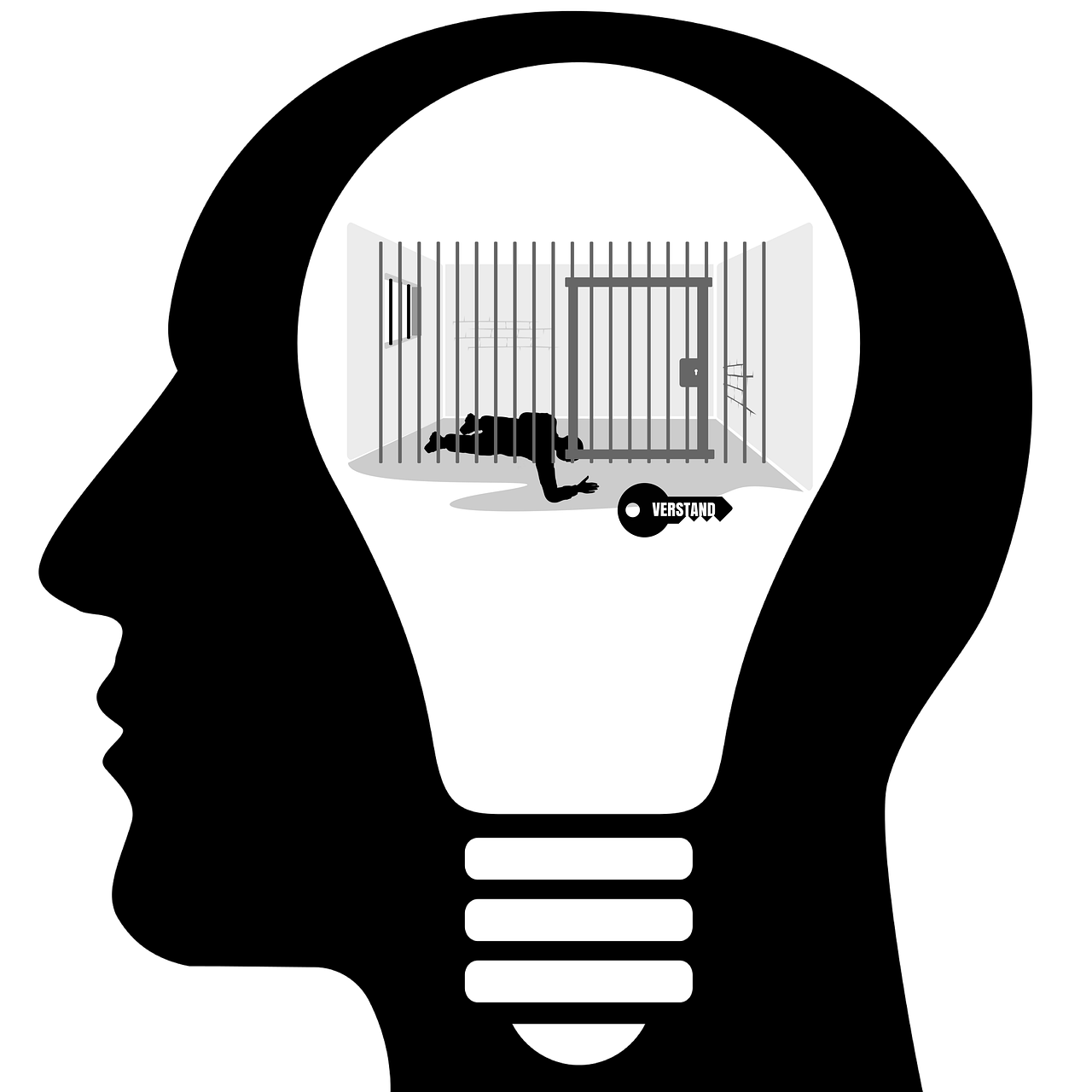
Implications for Consciousness
The exploration of perception's implications for consciousness opens up a fascinating dialogue about what it means to be aware and to exist. At its core, consciousness is not just a passive state but an active engagement with our surroundings, shaped by the perceptions we experience every moment. When we delve into how perception influences our understanding of self and reality, we uncover layers of complexity that challenge our very notions of identity and existence. For instance, consider how two people can witness the same event yet interpret it entirely differently. This divergence stems from their unique sensory experiences, shaped by personal histories, cultural backgrounds, and emotional states. In this sense, perception is the lens through which we view the world, and it plays a crucial role in constructing our consciousness.
Moreover, the implications of perception extend into the realm of self-awareness. When we reflect on our experiences, we often engage in a process of introspection that can alter our understanding of ourselves. This reflective process is heavily influenced by our perceptions, as it is through the act of perceiving that we come to know who we are. The interplay between perception and consciousness raises significant questions: Are we merely products of our sensory experiences, or do we have the agency to shape our perceptions and, consequently, our consciousness?
To further illustrate this dynamic relationship, consider the phenomenon of neuroplasticity. As our brains adapt to new experiences, they rewire themselves, allowing for changes in perception that can lead to profound shifts in consciousness. For example, individuals who practice mindfulness or meditation often report a heightened awareness of their thoughts and feelings, leading to a more profound understanding of their consciousness. This suggests that our perceptions are not static; rather, they are fluid and can evolve over time, reflecting the ongoing dialogue between our experiences and our awareness.
Additionally, the implications of perception on consciousness invite us to consider the ethical dimensions of our interactions with others. If our perceptions are inherently subjective, how does this shape our empathy and understanding of others' experiences? This question is particularly relevant in a world where cultural differences can lead to misunderstandings. By acknowledging the subjective nature of perception, we can cultivate a deeper empathy that recognizes the validity of others' experiences, ultimately enriching our collective consciousness.
In summary, the implications of perception for consciousness are profound and multifaceted. They challenge us to reconsider our definitions of self-awareness, identity, and interpersonal relationships. As we continue to explore this intricate relationship, we may find that understanding perception is not just an academic pursuit but a journey toward greater self-awareness and connection with others.
- What is the relationship between perception and consciousness?
The relationship between perception and consciousness is intricate, as perception shapes our understanding of reality and influences our self-awareness and identity. - How does neuroplasticity affect perception?
Neuroplasticity allows the brain to adapt and change in response to experiences, which can lead to altered perceptions and a deeper understanding of consciousness. - Can perception be influenced by cultural factors?
Yes, cultural backgrounds and personal histories significantly shape how individuals perceive and interpret sensory information. - What role does empathy play in understanding perception?
Empathy allows us to appreciate the subjective nature of others' perceptions, fostering deeper connections and understanding in interpersonal relationships.
Frequently Asked Questions
- What is the relationship between neurology and perception?
The relationship between neurology and perception is intricate and fascinating. Neurology studies the brain's biological processes, revealing how neural pathways and brain functions shape our sensory experiences. This means that our perceptions are not just subjective interpretations; they are deeply rooted in the physical workings of our brain. Think of it like a complex orchestra where each instrument (neural mechanism) plays a vital role in creating the symphony of our perception.
- How does neuroplasticity affect our perception?
Neuroplasticity is the brain's ability to reorganize itself by forming new neural connections throughout life. This means that our experiences can literally reshape how we perceive the world. For instance, if someone has a traumatic experience, their brain may adapt in ways that alter their sensory processing. It’s like a river that changes its course over time; our experiences can redirect the flow of our perceptions, making us see things differently.
- What role does phenomenology play in understanding perception?
Phenomenology is a philosophical approach that focuses on the lived experiences of individuals. It emphasizes understanding perception from the first-person perspective, allowing us to delve into how people interpret sensory information uniquely. This method helps us appreciate the subjective nature of perception, highlighting that two people can experience the same event but perceive it in completely different ways, much like two artists painting the same landscape with their own styles.
- Can neurological conditions alter perception?
Absolutely! Neurological conditions can significantly alter how individuals perceive the world. For example, someone with synesthesia might hear colors or see sounds, blending sensory modalities in ways that are extraordinary. These conditions provide valuable insights into the complexities of sensory processing and help researchers understand the fundamental nature of perception.
- How does culture influence perception?
Cultural background plays a crucial role in shaping how we interpret sensory information. Our experiences, beliefs, and values—often influenced by our culture—can color our perceptions. For instance, a dish that is considered a delicacy in one culture might be viewed as unappetizing in another. This highlights the subjective nature of perception and how it is intertwined with our cultural identities.
- What implications does perception have for consciousness?
The implications of perception on consciousness are profound. Perception not only shapes our understanding of reality but also influences our self-awareness and identity. It raises questions about what it means to be conscious and how our unique perceptual experiences contribute to our sense of self. In essence, our perception acts as a lens through which we view the world and ourselves, making it a fundamental aspect of human experience.

